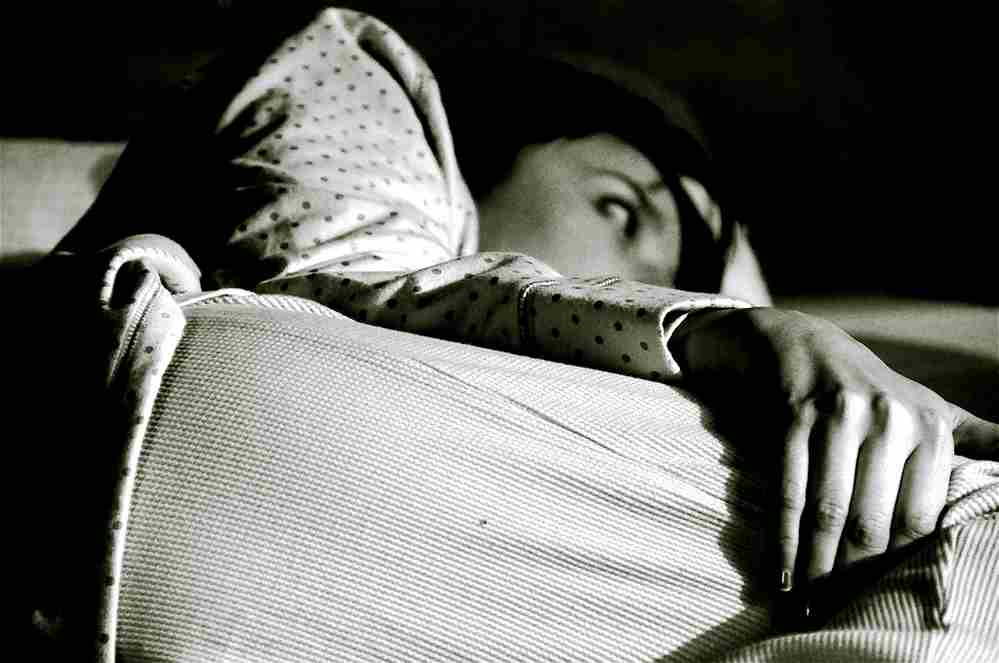Nearly every parent has experienced a night when your child just won’t sleep; or maybe your toddler has been waking consistently at 2:00 a.m. for the past month. Regardless of when you’ve experienced night wakings, most of us wonder at some point if our child could possibly be suffering from insomnia. Luckily, true insomnia is generally easily identified, and not incredibly common in children younger than 5 years old. That being said, it’s possible that the awakenings your baby is experiencing may be symptoms of insomnia.
Your child may be experiencing bouts of insomnia if they are showing some of these symptoms:
- Daytime grogginess,
- Mood swings,
- Extreme irritability,
- Hyperactivity,
- No attention span,
- Aggression,
- Difficulty falling asleep (or staying asleep), or
- Early Rising.
You’re probably wondering how insomnia is different from night wakings…the trouble is that both issues present some of the same symptoms, and insomnia is notoriously difficult to diagnose. Thankfully, the remedy for both problems is strikingly similar. In fact, “in children, bedtime resistance and dependency on a parent to initiate sleep is also considered a form of insomnia with behavioral causes at the root of the problem.”
Generally, both night wakings and insomnia are caused by one or more of the following issues:
Stress
Even children can experience stress. Maybe a friend that wasn’t kind on the playground troubles him, or he was made to share when he really doesn’t like sharing toys. Additionally, if you’ve just added a baby to the mix, you may find that the stress of this change affects your older child(ren)’s sleep. You can help with your child’s stress level by keeping a dialogue going about what happens during the day, and how he feels about it. I find that having a family dinner is a great time to talk about what happened during the day.
Medications
If your child is on medication for any reason, be sure that you check the potential side effects. You may be surprised to find that insomnia or trouble sleeping may be listed as a potential side effect. If the medication is temporary (perhaps for an illness), then the insomnia or night wakings should subside once your child is off the medication. However, if the medication is something that your child must take daily (such as medications for ADHD or other medical conditions), you may need to speak to your pediatrician about the problem if it doesn’t resolve itself after a few weeks.
Medical or Sleep Disorders
Something as simple as a runny nose, cold, or even allergies can cause your child to have trouble sleeping. And something as simple as snoring could indicate that your child may have sleep apnea. I would encourage you to speak to your pediatrician if you feel that a medical or sleep disorder (such as apnea) is affecting your child’s ability to get quality sleep.
Environment
Remember, children sleep best in a quiet, cool, dark room. Having a solid, reassuring bedtime routine in place will help encourage sleep as well. Make sure that your child’s room is a comfortable temperature, and that she isn’t too warm. Additionally, if early rising is your problem, black out curtains can help to delay ‘sunrise’.
A Note From The Sleep Lady: If your child is truly experiencing insomnia, it is important to recognize whether you’re dealing with short-term or long-term insomnia. Short-term insomnia generally occurs for a period of a few days to a few weeks, and is caused by sickness, teething, or a growth spurt. Long-term insomnia is defined as sleeplessness that occurs at least three times per week for a month (or longer). In these instances, it is prudent to speak to your pediatrician to rule out any medical problems.
Now, as I said, most children experience night wakings, and not true insomnia. The issues I previously mentioned, as well as some of the following factors may cause night wakings:
Poor Nap Habits
When your baby doesn’t sleep during the day, it’s my experience (and the experience of the many parents whom I’ve helped) that nighttime sleep can be disrupted. Make sure that you have a good, solid naptime routine, as well as an established flexible schedule for your daytime activities.
Sleep Associations
This is especially true if you’ve just started sleep coaching. If your baby is used to being rocked, nursed, patted, or shushed to sleep, they may wake during the night expecting that you’ll continue to lull them to sleep in the same fashion. With sleep associations, it is very important that you not create a new sleep crutch when you’re working to resolve the existing problem.
Hunger
By six months, many babies are able to sleep through the night without needing to eat. However, if your baby isn’t consuming enough calories during the day, he may wake up hungry at night.
Developmental Milestones
Babies are growing at a rapid rate, and developmental milestones, such as rolling over, teething, crawling, walking, talking, etc., can cause your child’s sleep to be disrupted. Sometimes parents refer to these times as sleep regressions, due to the fact that often, these changes affect their child’s sleep. You may be dealing with a sleep regression if the timing of your baby’s night wakings seems to coincide with a new tooth, crawling, walking, or other large developmental leap.
Overly Lengthy Wakefulness Windows
I’ve talked about wakefulness windows before, and I’m going to say it again: your baby (or toddler) has a limited amount of time that they can feasibly be awake and not become cranky, overtired, and a challenge to put to sleep. Be sure that you aren’t keeping your child awake past her wakefulness window to ensure that she is able to fall asleep easily.
Early Rising
Even though early rising can be a symptom of night waking, it can also be the cause. When children don’t get enough quality sleep, they often have trouble staying asleep, as they become accustomed to the awakenings. If you find that your child is waking earlier than 6:30 a.m. every morning, remember to do The Shuffle to help encourage them to sleep, and practice dramatic wake up once the clock indicates that it’s an appropriate time. Remember, 6:30 a.m. is a biologically appropriate time for a child to be awake, and shouldn’t be discouraged.
Late Bedtimes
Most babies, toddlers, and preschoolers natural bedtimes are between 7:00 and 8:00 p.m. Many children don’t make it to bed this early, however, and this can contribute to an overtired baby who has a difficult time going to sleep and staying asleep.
Have you dealt with night waking or insomnia in your child?
In (semi) related news, I’m excited to announce a new Rafflecopter giveaway! The Sleep Lady Facebook Page has reached 4,000 fans, and to celebrate, I’m giving away an Original Shnoozle! To enter, simply click on the Rafflecopter link!
Was this article helpful to you? Please tell us by commenting below!
For more baby, toddler, and family sleep tips and tricks, please subscribe to The Sleep Lady’s Facebook, Twitter, Pinterest, Google+, and YouTube channel! If you are looking for more sleep content, please check out Get Sleep Now-an exclusive members-only area designed to provide in-depth help and support during your sleep coaching experience.
photo credit: Alyssa L. Miller via photopin cc




